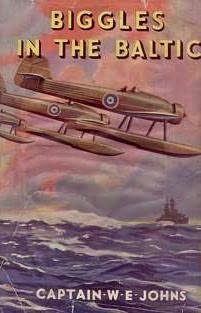Hadrian's Villa at Tivoli, near Rome, is well worth visiting, especially if you also squeeze in a trip to a more modern take on the lust for civilised country living and visit the
Villa d'Este with its unbelievably beautiful water gardens. Italian gardens are a particular shade of green which seems resistant to the seasons; even in winter, when I visited, these gardens were spectacular. Water features were very important to the ancient Romans and turn up on both small, large and enormous gardens. Hadrian's Villa, the emperor's bolt-hole from the Roman rat race, easily qualifies as ginormous. Built for the
Emperor Hadrian, who reigned from AD 117-138, this villa is astounding.
Eleanor Clark (1913-1996) went to Rome on a Guggenheim Fellowship in 1947. She planned to write a novel. Instead she fell under the spell of the city and her surrounds and produced the most idiosyncratic account of the world she discovered that I have read. Her description of a meander through Hadrian's Villa lies at the core of her book: it is a deeply personal interpretation of what she saw as she wandered (and doesn't stand up too well to hard-nosed archaeological analysis) and she perfectly captures the bewildering maze of buildings in the complex as she tries to link what she sees with what she knows about Hadrian and his egomaniacal project: "the sick screaming I."
Built up around the chapter on the villa are Clark's impressions of Rome as she makes her way about the city. Clark's Rome is one dealing with the aftermath of fascism and standing on the cusp of the la dolce vita. In sometimes a mere paragraph she pins down a building, a curiosity, a custom, a saint, a martyr, a prince, a staircase, an icon, a genius (Raphael: "Died aged thirty-seven, of overwork."), ruins, cats, gardens, law and order, whatever captures her skilled eye in "the great assault of Rome... total and terrible." There are also chapters on the pilgrims at Holy Year celebrations (1950; and revisited by Clark in 1975), the Pyramid of Cestius and the Protestant Cemetery in Rome (where Keats and Shelley have grave monuments), Roman poetry and Rome's take on Sicilian banditry, among other things.
The sheer jumbledness of this offering can be off-putting and I experienced a few moments of "not another list" irritation. Yet Rome is jumbled and Rome is irritating. But if you let yourself wander, forget your schedules (and don't write that novel!), you'll agree with Clark that in Rome, "You walk close to your dreams."
Rating: 7/10.
If you liked this... bear in mind that it lacks almost all practical application as a travel guide. In this category I would also include such delightful early 20th century travelogues as those by
E.V. Lucas in his series '
A Wanderer in...' (sc. Florence; Venice; Rome; etc.). These seem to be available as e-books about the place.
 |
| Keat's grave monument in the Protestant Cemetery, Rome |































